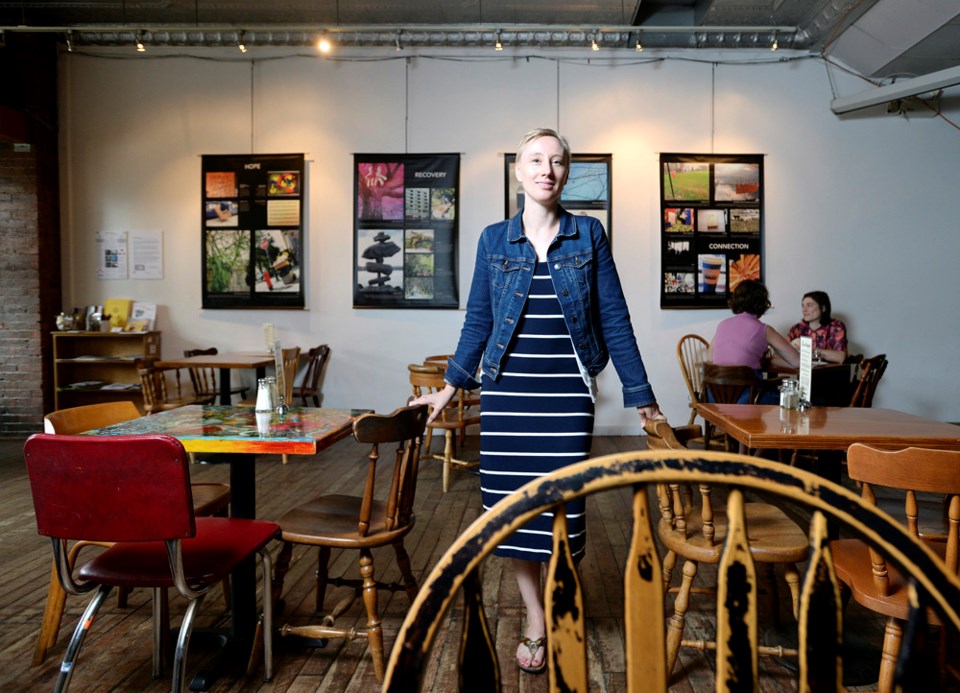Racism is at the root of many of the human-made catastrophes roiling our world. In the United States, police murders of African-Americans —and the apparent revenge murders of police officers — are the backdrop for the current political season, in which Donald Trump unsubtly plays on white fears and prejudices.
When these tragically frequent murders (and many more non-lethal shootings) occur, public officials assure us their prayers are with the victims. But prayers don’t seem to be working. And moments of silence are truly the last things we need. Times like these call for action.
Here in Vancouver, Trinity United Church is organizing a series of events that welcome anyone to look into themselves and recognize — and work to overcome — some of the attitudes we all carry.
A workshop called “Unpacking privilege and addressing racism for white folks” takes place this Monday, July 25. Another, on how to become an advocate and an ally, takes place Aug. 9.
“We are in a time where you barely need to look online or turn on the news broadcast to understand how critical it is that we really look at the issue of racism on a systematic but also on a personal and individual level as well,” says Rev. Rhian Walker, minister of Trinity United. “We wanted to do our small part to at least start that conversation and help provide people with those skills as they go into doing that really difficult work.”
Despite smug remarks on social media suggesting Canada is superior to the United States on issues of racial discrimination, Walker says we all have work to do.
“It's certainly not an American problem,” she says. “It's a human race issue more than anything else. We don't have to look very far in Canada just to see our history with the First Nations communities and how that unfolded to know that that is alive and well or else there wouldn't be such a high incarceration rate of First Nations men. That's just one very basic statistic.”
Approaching these issues from a religious foundation is an advantage, Walker contends.
“If you're going to look at racism and anti-racism,” she says, “it's really helpful for it not to be an intellectual exercise only. What spirituality asks you to do is deep change … spiritual techniques provide you with really good tools and a framework for doing that.”
Christianity has been used to underpin some systemically racist structures, from the residential schools system to apartheid. Walker acknowledges this, but insists the real message is different.
“It's pretty clear in the Christian tradition that you are supposed to be taking down barriers that prevent you from seeing everyone as being a part of yourself, as a brother and sister,” she says.
Workshop participants, she says, will ground their efforts in spiritual practices, including prayer, meditation and readings in order “to know that what we're doing is beyond just our own individual actions or beliefs but is actually a moment of opportunity to tap back into something larger, which is the holy.”
The events take place at Heartwood, a church-run café and social justice hub at 317 East Broadway, near Kingsway.
The Aug. 9 workshop will be led by vanessa bui, who is the youth community developer at PeerNetBC and who spells her name in lowercase. PeerNetBC, she explains, provides training, resources and support for peer-led initiatives in facilitation, anti-oppression training, conflict resolution, communications and other topics.
“The framework we use is anti-oppression,” she says. “Not only does that encompass anti-racism, it encompasses all other kinds of isms that exist: sexism, ableism, heterosexism, ageism,” says bui. “These are all separate issues but at the end of the day they are connected by the same root. We want to address it at the root.”
Anyone who comes to an anti-racism workshop is probably already on the path to recognizing their inherent biases, but bui is confident everyone takes something away that is helpful.
Isn’t the solution, I ask, really just being respectful and nice to people? How do you stretch that out into a series of workshops?
“We try to expose and bring awareness to how complicated the issues really are,” says bui. “It's not as simple as just being nicer to folks, because we realize that there's different layers of power that are involved. There is a historical context that's involved. While being nicer to people is definitely one goal that comes out of any of these workshops, it's really about understanding that it's not just about the individual that needs to change the behaviour, it's the way our society is structured.”
Participants, she says, will have a better “mapping” of the way the world is structured so that they can also be a part of finding a solution for really large and complicated problems.
“My intention isn't that someone is going to go away thinking that they have all the solutions for all the problems,” she says. “It's really [about] having a more nuanced understanding that we don't have all the answers to everything and that's an OK place to be and that we don't have to solve everything right away, but that we have to talk about the problems that exist in the first place and be open to these conversations. We have to start with conversations.”
@Pat604Johnson



